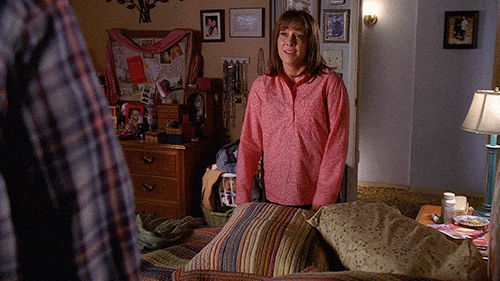Autism in a 40-Year-Old Woman: The Signs, the Struggle, and the Superpowers
#TalkNerdyToMe® Staff Writer
So, you're a 40-year-old woman wondering if you might be autistic—or maybe you already know, and you're just trying to make sense of it all. Either way: Welcome. Pull up a chair, grab a weighted blanket, and let’s talk about autism in adult women.
Spoiler alert: It's not all Rain Man or Sheldon Cooper vibes. It's more like, “Why do I need three days to recover from one awkward phone call?” or “Why does everyone seem to have the rulebook except me?”
Let’s dig in.
What Is Autism Spectrum Disorder (ASD)?
Autism Spectrum Disorder is a neurodevelopmental condition that affects how you process the world, interact socially, and communicate. It’s called a spectrum because no two autistic people are the same—and trying to lump us all together is like trying to describe all desserts as “cake.” (Have you ever compared Jell-O to tiramisu? Exactly.)
For the record, terms like “high-functioning autism” are falling out of favor because they erase the struggles people face behind the scenes. Just because someone can hold down a job or make eye contact doesn’t mean they’re not internally spiraling over fluorescent lighting or confusing small talk.
Autism in Adult Women: Why It Looks Different
Let’s get one thing straight: the reason so many women (especially women in their 30s and 40s) go undiagnosed is because the traditional autism checklist was written based on… you guessed it… boys.
Women tend to mask. Like, Academy Award-winning levels of masking. You might:
Force eye contact while dying inside
Mimic social cues like a human chameleon
Obsessively script conversations in your head
Crash into burnout from “pretending to be normal”
Sound familiar? Then congrats, you’re not broken. You’re just possibly autistic—and exhausted.
Why Awareness Matters (Like, a Lot)
Getting diagnosed as a 40-year-old woman with autism can feel like reading the plot twist of your own life story. Finally, things start making sense.
Diagnosis isn’t about putting yourself in a box—it’s about unlocking the manual you never got. It helps with:
Accessing therapy and support groups
Requesting accommodations at work
Understanding that you’re not lazy, weird, or dramatic
Also, you might finally forgive yourself for “failing” at being neurotypical. You weren’t supposed to pass that test anyway.
Common Signs of Autism in a 40-Year-Old Woman
Here are some traits you might recognize if you’re a late-diagnosed autistic woman:
Obsessive interests that may look “normal” on the outside (true crime, skincare routines, Victorian literature) but go to encyclopedic levels of depth.
Stimming—rocking, tapping, humming—that you do privately because you learned young that people thought it was “weird.”
Difficulty with small talk or reading between the lines (sarcasm is basically another language).
Intense social exhaustion even when you seem “fine” on the outside.
A lifelong sense of being different, misfit-y, or like you’re always a few social steps behind.
TL;DR: If you’ve spent your whole life masking, masking, masking—and wondering why it’s so exhausting—this might be your sign.
So-Called “High-Functioning” Autism and Why It’s Misleading
Look, the term “high-functioning” is kind of a slap in the face. You might “function” well enough to hold a job, raise kids, or make it through a dinner party, but behind the scenes? You're emotionally fried, overwhelmed by sensory chaos, and constantly beating yourself up for struggling with “simple” tasks.
Executive dysfunction, anyone? It’s not that you’re lazy—you just need a three-hour nap after scheduling a dentist appointment.
Why Autism in Women Often Gets Missed
Let’s talk misdiagnosis. Many women get labeled with:
Anxiety
Depression
Borderline Personality Disorder
Eating disorders
“She’s just really sensitive” (ugh)
The masking is so good, even doctors miss it. Why? Because female-presenting autistic people often develop social coping mechanisms that mimic neurotypical behavior. You’ve been studying humans your whole life, like Jane Goodall but with less jungle.
Add in gender expectations (you’re “too social to be autistic,” “too caring,” “too normal”) and boom: misdiagnosed or completely dismissed.
Getting an Autism Diagnosis as an Adult Woman
Here’s what the process looks like:
Do your homework – Learn about how autism presents in adult women. Spoiler: It’s not what most people think.
Track your traits – Write down life experiences that made you feel “off” or misunderstood.
Find the right professional – Ideally someone who specializes in adult autism, especially in women and AFAB folks.
Bring receipts – Examples, stories, even journals help the process.
Involve someone who knows you – A parent, partner, or bestie can provide a helpful second perspective.
Be patient and persistent – Diagnosis can take time, especially if you’ve been masking for 40+ years.
And yes, it can feel weird to "prove" you’re autistic. But this isn’t about labels—it’s about self-understanding and empowerment.
Life After Diagnosis: Welcome to the Autistic Club
Getting a diagnosis at 40 is not the end—it’s the beginning of figuring out how your brain actually works. Daily life still has its challenges, but now you get to support yourself the way you’ve always needed.
Some daily struggles:
Sensory hell at grocery stores
Meltdowns you’ve called “panic attacks” for years
Job burnout from trying to “fit in”
Stimming suppression in public
Constant masking fatigue
But guess what? You’re not imagining it. And now, you can start creating an environment where you actually thrive.
Coping Strategies That Actually Help
Structure & routine = your new best friend
Sensory-friendly tools like noise-canceling headphones and soft clothing
Scripts for socializing – Yes, this is a real thing, and yes, it works
Accommodations at work – Think: flexible hours, quiet spaces, communication in writing
Therapy – Especially autism-aware therapists and CBT for anxiety
Self-advocacy – It’s not selfish to ask for what you need. It’s survival.
And most importantly? Self-compassion. You’re not too much. You’re not broken. You just needed the right user manual.
Community = Everything
You are not alone. Online support groups, neurodivergent communities on Instagram, subreddits, Discord groups—there are people out there who get it. And they’ll help you feel seen, maybe for the first time ever.
Explaining your diagnosis to friends and family can be tough, but it’s a game changer. The more they understand, the better they can support you.
And if they don’t? That’s not your failure—it’s their limitation. Find your people.
Final Thoughts: The Power of Knowing
If you’re a 40-year-old woman wondering if you’re autistic, or you just got diagnosed, here’s what you need to know:
You’re not imagining it
You’re not too old to find out
You’re not broken—you’re just wired differently
Getting diagnosed with autism as an adult woman is powerful. It means taking back your story. It means no longer living by everyone else’s rules. It means you finally get to be you—out loud, unmasked, and unapologetic.
And honestly? You’re going to rock it.



